Peugeot Partner vs VW ID.4 – Differences & prices compared
Compare performance, boot space, consumption and price in one view.
Find out now: which car is the better choice for you – Peugeot Partner or VW ID.4?
The Peugeot Partner (Cargo Van) comes with a Electric, Diesel or Petrol engine and Automatic or Manuel transmission. In comparison, the VW ID.4 (SUV) features a Electric engine with Automatic transmission.
When it comes to boot capacity, the Peugeot Partner offers 1800 L, while the VW ID.4 provides 543 L – depending on how much space you need. If you’re looking for more power, decide whether the 136 HP of the Peugeot Partner or the 340 HP of the VW ID.4 suits your needs better.
In terms of consumption, the values are 17.40 kWh5.20 L per 100 km for the Peugeot Partner, and 15.80 kWh for the VW ID.4.
Price-wise, the Peugeot Partner starts at 20500 £, while the VW ID.4 is available from 34600 £. Compare all the details and find out which model fits your lifestyle best!
VW ID.4 Video
Peugeot Partner
The Peugeot Partner is a versatile and practical vehicle, ideal for both urban and rural settings. Its spacious interior and adaptable seating make it a popular choice for families and businesses alike. With a focus on reliability and efficiency, the Partner is well-suited to meet the demands of everyday transport.
detailsVW ID.4
The VW ID.4 represents Volkswagen's commitment to the electric vehicle market, combining contemporary design with sustainability. Its spacious interior and intuitive technology make it an attractive choice for those seeking comfort and innovation in an eco-friendly package. With a focus on electric performance and practicality, this car is set to be a popular option among environmentally-conscious drivers.
details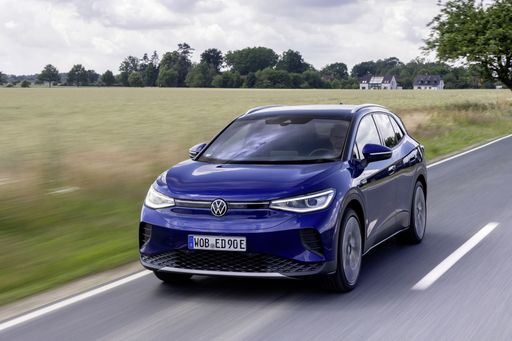 @ Volkswagen
@ Volkswagen
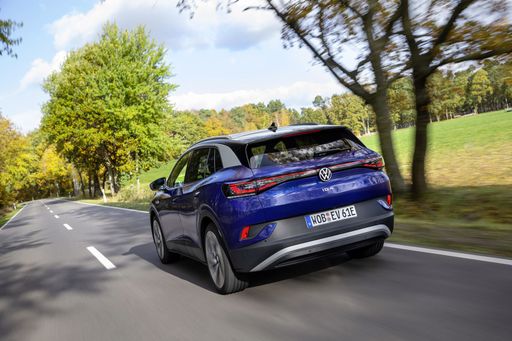 @ Volkswagen
@ Volkswagen
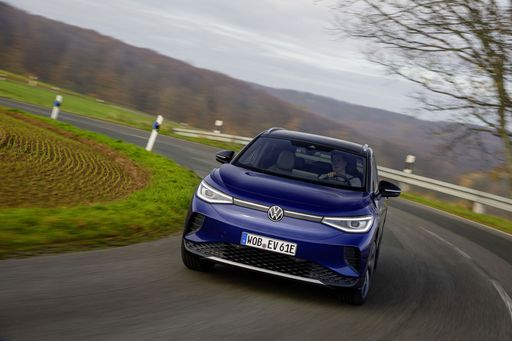 @ Volkswagen
@ Volkswagen
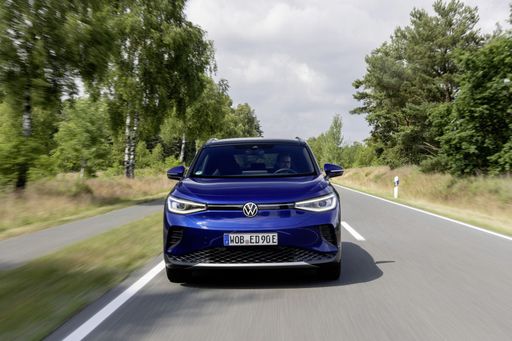 @ Volkswagen
@ Volkswagen
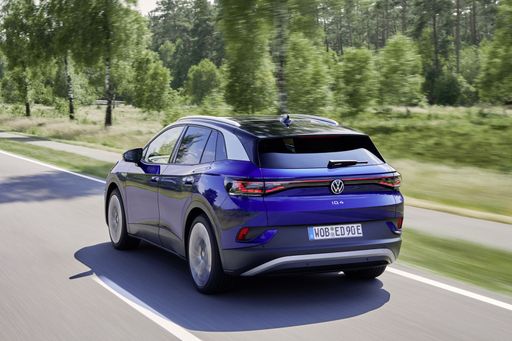 @ Volkswagen
@ Volkswagen
 @ Volkswagen
@ Volkswagen
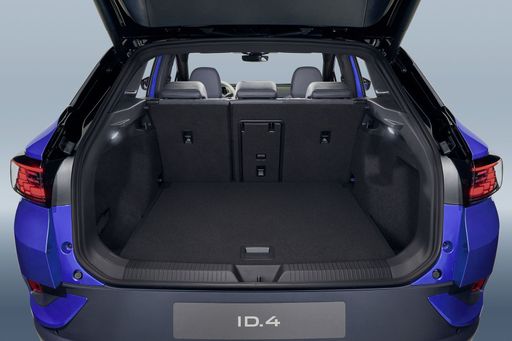 @ Volkswagen
@ Volkswagen
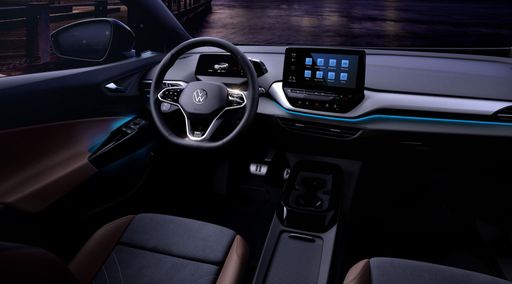 @ Volkswagen
@ Volkswagen

|
|
|
|
|
Costs and Consumption |
|
|---|---|
|
Price
20500 - 33800 £
|
Price
34600 - 47200 £
|
|
Consumption L/100km
5.2 - 6.3 L
|
Consumption L/100km
-
|
|
Consumption kWh/100km
17.40 kWh
|
Consumption kWh/100km
15.8 - 17 kWh
|
|
Electric Range
354 km
|
Electric Range
356 - 572 km
|
|
Battery Capacity
-
|
Battery Capacity
52 - 77 kWh
|
|
co2
0 - 143 g/km
|
co2
0 g/km
|
|
Fuel tank capacity
53 - 61 L
|
Fuel tank capacity
-
|
Dimensions and Body |
|
|---|---|
|
Body Type
Cargo Van
|
Body Type
SUV
|
|
Seats
2 - 5
|
Seats
5
|
|
Doors
4 - 5
|
Doors
5
|
|
Curb weight
1329 - 1813 kg
|
Curb weight
1975 - 2261 kg
|
|
Trunk capacity
1800 L
|
Trunk capacity
543 L
|
|
Length
4401 - 4751 mm
|
Length
4582 - 4584 mm
|
|
Width
1848 mm
|
Width
1852 mm
|
|
Height
1796 - 1812 mm
|
Height
1619 - 1634 mm
|
|
Payload
611 - 991 kg
|
Payload
509 - 551 kg
|
Engine and Performance |
|
|---|---|
|
Engine Type
Electric, Diesel, Petrol
|
Engine Type
Electric
|
|
Transmission
Automatic, Manuel
|
Transmission
Automatic
|
|
Transmission Detail
Manual Gearbox, Automatic Gearbox
|
Transmission Detail
Reduction Gearbox
|
|
Drive Type
Front-Wheel Drive
|
Drive Type
Rear-Wheel Drive, All-Wheel Drive
|
|
Power HP
102 - 136 HP
|
Power HP
170 - 340 HP
|
|
Acceleration 0-100km/h
11.2 - 14.8 s
|
Acceleration 0-100km/h
5.4 - 9 s
|
|
Max Speed
135 - 184 km/h
|
Max Speed
160 - 180 km/h
|
|
Torque
205 - 300 Nm
|
Torque
310 - 679 Nm
|
|
Number of Cylinders
3 - 4
|
Number of Cylinders
-
|
|
Power kW
75 - 100 kW
|
Power kW
125 - 250 kW
|
|
Engine capacity
1199 - 1499 cm3
|
Engine capacity
-
|
General |
|
|---|---|
|
Model Year
2024
|
Model Year
2023 - 2025
|
|
CO2 Efficiency Class
A, E
|
CO2 Efficiency Class
A
|
|
Brand
Peugeot
|
Brand
VW
|
Peugeot Partner
Exploring the Peugeot Partner: A Blend of Versatility and Innovation
The Peugeot Partner has long been a staple in the world of light commercial vehicles, offering practicality and reliability. However, with the latest iterations, Peugeot has taken a bold step by integrating advanced technology and modern design to create a vehicle that's not just functional, but also efficient and environmentally friendly. Let's dive into the technical details and innovations that make the latest Peugeot Partner a standout choice in its class.
Efficient Powertrains: Diesel, Petrol, and Electric Choices
The 2024 Peugeot Partner provides a wide range of powertrains to suit different needs and preferences. Whether you're looking for the tried-and-tested efficiency of a diesel engine, the simplicity of petrol, or the future-ready appeal of electric, the Partner offers them all. With power outputs ranging from 102 to 136 PS and options for automatic and manual transmissions, it caters to those who desire flexibility in vehicle performance.
Embracing Electric: The E-Partner Revolution
One of the most notable features of the latest Peugeot Partner is the introduction of the e-Partner, an all-electric variant. This model comes equipped with a 50 kWh battery, providing a significant range of up to 354 km on a single charge, making it ideal for urban deliveries or longer commutes with no emissions. Its front-wheel-drive layout and electric motor deliver 136 PS, ensuring a lively yet smooth driving experience.
Room for More: Versatility and Cargo Space
Peugeot understands the importance of adaptability in commercial vehicles. The Partner offers up to 1,800 litres of cargo space, or the capacity to carry payloads ranging from 611 to 991 kg. Additionally, the choice of 4 to 5 doors and seating configurations from 2 to 5 seats ensures that the Partner can be customised to meet the specific needs of various business requirements.
Compact Yet Capable: Dimensions and Design
The Peugeot Partner showcases a clever balance of compact exterior dimensions and a spacious interior. With lengths between 4,401 mm and 4,751 mm, and a width of 1,848 mm, it delivers easy manoeuvrability in urban environments without compromising on cargo capacity. The height ranges from 1,796 mm to 1,812 mm, ensuring stability and on-road presence.
An Eye on Sustainability: CO2 Emissions and Efficiency
Peugeot's commitment to sustainability is evident in the Partner's diverse powertrain options and their associated CO2 emissions, which range from zero for the electric variant to a maximum of 143 g/km for certain internal combustion engine models. This variety allows businesses to choose based on their environmental goals as well as operational needs.
A Multi-Talented Performer: Performance and Practicality
With acceleration figures from 0-100 km/h in just 11.2 seconds for some models and a top speed of up to 184 km/h, the Partner is not just about practicality; it's also about performance. The available torque between 205 and 300 Nm contributes to confident driving dynamics whether navigating urban settings or cruising on the motorway.
Conclusion: The Partner of the Future
The Peugeot Partner continues to be a frontrunner in the small van segment, thanks to its innovative approach to design, fuel efficiency, and technological integration. By providing a range of powertrain options and configurations, the Partner meets the diverse needs of today's businesses while keeping an eye firmly on the future. Whether opting for the environmentally friendly e-Partner or the robust diesel variant, Peugeot has crafted a vehicle that truly earns the name "Partner".
VW ID.4
The VW ID.4: A Leap into the Electric Era
As electric vehicles steadily capture the automotive market, the Volkswagen ID.4 stands as a testament to impressive innovation and functionality. Combining eco-friendly technology with the practicality of an SUV, the VW ID.4 is designed to appeal to both environmentally conscious drivers and those seeking versatility in their vehicle choice. In this article, we'll explore the significant technical features and innovations that make the ID.4 a remarkable option in the electric vehicle market.
Powertrain Options: Efficiency Meets Performance
The Volkswagen ID.4 offers a range of powertrain options to suit various driving preferences. With power outputs ranging from 170 to 340 PS and torque figures between 310 and 679 Nm, the ID.4 provides a versatile driving experience. Whether you opt for the responsive rear-wheel drive or the enhanced stability of the all-wheel-drive configuration, each model guarantees smooth and efficient performance.
With an emphasis on efficiency, the ID.4 boasts a consumption rate between 15.8 and 16.8 kWh/100km, making it an economical choice for those mindful of their energy usage. Furthermore, the ID.4 offers a robust driving range, with potential distances reaching up to 572 km, reducing the need for frequent recharging and allowing for longer journeys with peace of mind.
Charging and Battery Technology
Efficiency isn't the only strong suit of the ID.4—the battery technology is equally impressive. With a battery capacity ranging from 52 to 77 kWh, Volkswagen ensures that drivers can match their vehicle choice to their lifestyle needs. Charging is straightforward and adaptable, providing convenience whether at home or on the move.
The ID.4 is designed for compatibility with a variety of charging infrastructure, ensuring rapid charging times and minimal downtime. This thoughtful engineering ensures that drivers spend more time on the road and less time waiting at charging stations.
Design and Practicality: An SUV with a Mission
The VW ID.4 embraces its SUV heritage, offering ample interior space and practicality without compromising on style. With its dimensions ranging from 4582 to 4584 mm in length, 1852 mm in width, and up to 1634 mm in height, the ID.4 ensures a comfortable and spacious environment for up to five passengers.
Additionally, the ID.4 provides a generous boot space of 543 litres, making it ideal for families or those with an active lifestyle requiring extra storage. The careful consideration in design extends to weight efficiency, with the vehicle's own weight between 1979 and 2261 kg helping to enhance its overall drive dynamics and efficiency.
Innovative Features and Technology
Volkswagen has equipped the ID.4 with a suite of advanced technological features designed to enhance both safety and driving enjoyment. These features include intuitive infotainment systems, driver-assistance technologies, and connectivity options tailored to modern expectations.
One standout attribute of the ID.4 is its commitment to sustainability with a CO2 efficiency class of A, demonstrating Volkswagen's dedication to reducing environmental impact without sacrificing performance or functionality.
Conclusion: The Future is Electric
The VW ID.4 is a shining example of how traditional automotive excellence adapts to contemporary demands for sustainability and efficiency. Whether you are an enthusiastic early adopter of electric vehicles or simply someone in search of a reliable and advanced SUV, the ID.4 offers a compelling package designed for the future.
For anyone ready to embrace the electric revolution, the Volkswagen ID.4 represents a significant step forward—a combination of forward-thinking technology, efficient design, and an emphasis on practicality. This makes the ID.4 a worthy consideration for any discerning driver looking to invest in their next vehicle.
Which drive types are available for the Peugeot Partner?
Available as Front-Wheel Drive.
The prices and data displayed are estimates based on German list prices and may vary by country. This information is not legally binding.
